Cabbage and other cruciferous vegetables (crucifers) are among foods people with thyroid issues are told to avoid, but does sauerkraut (fermented cabbage) harm the thyroid?
Fermented foods are an important part maintaining thyroid health and healing from thyroid disorders. Microbes in fermented foods help restore proper gut function and strengthen the immune system – two therapeutic goals for thyroid interventions.
Yet common fermented foods, such as sauerkraut and kimchi, have cruciferous vegetables as main ingredients: cabbage in sauerkraut, daikon radish and napa cabbage in kimchi.
Actually, the structure, texture, and storage capacity of most crucifers lend well to fermenting. For this reason (and because they just taste great), many fermented vegetables contain crucifers such as cauliflower, kohlrabi, broccoli, turnip, and rutabaga.
If healthy thyroid function requires a healthy gut and balanced immune system, it seems prudent to include fermented foods. But the question remains: do fermented cruciferous foods like sauerkraut harm the thyroid.
This article will lay out whether everyone needs to exercise caution around crucifers or only people with current thyroid issues. Regardless, I’ll give direction about how to navigate fermented foods so everyone can use these foods to build good gut health.
First things first, what vegetables are we talking about when we say cruciferous vegetables? Let’s get the basics clear before talking about fermented crucifers.
Table of Contents
What are cruciferous vegetables?
Cruciferous vegetables belong to the Cruciferae (formerly Brassicaceae) family that include those vegetables with a sharp bitter taste and pungent sulfur smell. These characteristics that have children turning their noses up and mothers responding, “Eat your broccoli; it’s good for you.”
Broccoli, cabbage, cauliflower, Brussel sprouts, and kale are among the most commonly grown crucifers, but there are many other vegetables that fall within this plant family (see full listed below).
| arugula (rocket) bok choy* broccoli* broccolini* canola/rapeseed* cauliflower (white, purple, green)* cabbage* Chinese cabbage napa cabbage* collard greens* | daikon field pepperweed garden cress horseradish kale* kohlrabi* komatsuna mizuna (mustard greens) mustard seedsradish | rapini (broccoli rabe) rutabaga* savoy cabbage tatsoi turnip root and greens* wasabi watercress wild broccoli sprouts of any of these vegetable seeds* |
Glucosinolates in crucifers
The decision to eat cruciferous vegetables or not is largely around glucosinolates.
Crucifers have outstanding health benefits, yet not exclusively related to their high source of vitamins and minerals. High levels of health-promoting glucosinolates, are the reason cruciferous vegetables take the health spotlight among other plants for having anticarcinogenic (1,2,3), detoxifying (4), anti-inflammatory, and hormone balancing effects (5,6).
Glucosinolate in themselves are not health-promoting. They are actually inactive precursor chemicals to bioactive breakdown products – isothiocyanates, indoles, nitriles, and thiocyanates. It is the activated product that produces the action.
Activation requires myrosinase, a plant enzyme, that converts inactive glucosinolates into the activated products. For myrosinase does it magic when handling, processing, or chewing cruciferous vegetables.
Bacteria in the colon also contain myrosinase (bacterial myrosinase), but studies show that bacterial myrosinase is no more than 20% efficient; whereas, plant myrosinase is 17-88% efficient in activating precursors (7,8).
If crucifers have such remarkable health benefits, what is the basis for recommending avoidance of cruciferous vegetables, at least for people with thyroid issues?
One word: goitrogens.
What are goitrogens?
Goitrogens are substances that interfere with thyroid function by disrupting thyroid hormone production, inhibiting its release, or impairing iodine uptake, which is a mineral incorporated into thyroid hormones.
High amounts of goitrogens can cause an abnormal enlargement of the thyroid gland known as goiter. Non-cruciferous and cruciferous plants, environmental chemicals, and medications are sources of goitrogens.
Goitrogens in cruciferous vegetables
Glucosinolates in raw cruciferous vegetables yield two classes of goitrogenic compounds: isothiocyanates (e.g. goitrin) and thiocyanates. These goitrogens block iodine uptake into the thyroid and impair an enzyme involved in thyroid hormone production (thyroid peroxidase).
Cruciferous vegetables yield varying amounts of goitrogenic compounds. For example broccoli, Chinese cabbage, and bok choy have low levels of goitrogenic compounds, while Russian/Siberian kale, collards, and Brussel sprouts contain high amounts that could impact thyroid function (9).
Cooking deactivates goitrogens
It is well known that cooking deactivates myrosinase, the enzyme needed to convert glucosinolates into active goitrogens. Since bacterial myrosinase in the colon cannot efficiently degrade glucosinolate precursors into goitrogens, eating cooked cruciferous vegetables does not affect thyroid function. This was confirmed by a 1986 study that provided participants with a portion of cooked Brussel sprouts, a particularly rich source of glucosinolates, for 4 weeks (10).
Still, reports of goiter in iodine-deficient animals that ate high amounts of crucifers raised concerns about human consumption of goitrogens in cruciferous vegetables. Until recently, there lacked substantial evidence from human studies to clarify whether raw cruciferous vegetables actually affect thyroid function. Let’s look at those new studies.
Scientific research
Recent studies have isolated extracts from raw cruciferous vegetables to determine whether various doses of inactive glucosinolate precursors or activate products (isothiocyanates) of raw cruciferous vegetables impact thyroid function.
Broccoli sprouts are one of the most popular cruciferous vegetables due to all the health benefits research has exposed.
Human studies
A high-quality study over 12 weeks gave 300 participants juice with one of three broccoli sprout extract: no broccoli sprout extract (placebo), extract with activated glucosinolates, or extract with inactivated (11). All extract doses reflected portions of broccoli sprouts that people would realistically eat.
At the end of the trial, three standard markers of thyroid function, TSH, free thyroxine (T4), and thyroglobulin were unaffected. Of the participants with markers fir Hashimoto’s thyroiditis, there was no worsening. Of people with slightly elevated TSH yet normal thyroid hormone levels, there was also no worsening (further increase in TSH).
A smaller study gave extracts of glucosinolates (inactivated) and isothiocyanates (activated) from broccoli sprouts to 12 healthy participants for seven days (12). The extract doses reflected what people realistically consume in a day through broccoli sprouts (i.e. roughly ¼ cup or 1½ cup).
Participants blindly received the control (no broccoli sprout extract), a low dose of isothiocyanates (active), or a high dose of glucosinolates (inactive). No significant changes were observed in terms of TSH, free thyroxine (T4), or total triiodothyronine (T3).
These human studies suggest that even cruciferous vegetable with high glucosinolates do not worsen markers of thyroid function when consumed in small to large portions. Let’s look at an animal study.
Animal Study
Researchers gave rats rutabaga sprouts, which contain known goitrogens. The rats either had normal thyroid function, iodine deficiency, or thyroid damage. The latter two are models of hypothyroidism.
The sprouts had no negative thyroid effects in healthy rats, but enhanced the negative effects of iodine deficiency and thyroid damage (13).
This study highlights that consuming cruciferous vegetables when iodine status is low or with existing thyroid damage will likely make thyroid function worse.
What about fermented raw cruciferous vegetables? Do fermented foods like sauerkraut have higher or lower levels of goitrogens?
Effect of fermentation on goitrogens levels in crucifers
Indeed, fermentation does change goitrogen level in crucifer-containing ferments. Unfortunately, it increases it.
A 2016 study tracked how glucosinolate levels changed over the entire fermentation process of raw cabbage shreds to finished sauerkraut. Complete degradation of glucosinolates corresponded with the highest count of lactic acid bacteria, showing that bacteria contribute to degrading 100% of inactive glucosinolates into active forms, some of which are goitrogenic (14).
This is much more efficient than the degradation of raw, non-fermented crucifers that have been shredded, sliced, or chopped (7,8).
These results shouldn’t suggest eliminating fermented cruciferous vegetables, like sauerkraut and kimchi, from your diet, especially if you have thyroid disorders.
This 2016 study also noted that the levels of breakdown products (Isothiocyanates, indoles, nitriles, thiocyates – some of which are goitrigenic) decrease during storage. This one of many reasons why fermentation of kraut and all other brine-pickled cruciferous vegetables should be fermented for 11-13 weeks before consuming, rather than seven days, as many internet websites recommend.
Fermented foods for thyroid function
Other immune-balancing and gut-healing benefits of fermented foods may outweigh the goitrogenic risks of fermented cruciferous vegetables.
Looking at the larger picture of healing and health is essential when determining what foods to include in a therapeutic diet. As long as sauerkraut isn’t your main and only ferment that you are using for gut health, fermented foods shouldn’t pose a risk.
In addition to eating condiment-size amounts of fermented cruciferous vegetables (2 tablespoons or less), aim for a variety of non-cruciferous fermented foods. Try fermented onions, turmeric, carrots, cucumbers, zucchini, jalapeno peppers, lemons, garlic, asparagus, tomatoes, beets, or beet kvass. Each of these ferments have tons of microbes and flavour.
Essential nutrients to support the thyroid
Keep in mind that essential nutrients that support thyroid hormone production must be at adequate level to avoid negative effects of raw or fermented cruciferous vegetables. Iodine, selenium, iron, and zinc are some of the main players.
Idoine
Iodine is a component of thyroid hormones. In iodine deficiency, thyroid hormone production reduces due to inadequacy of materials to build it. This can lead to hypothyroidism.
Cruciferous vegetables and cassava inhibit the uptake of iodine from the bloodstream into thyroidal cells; however, several studies confirm that cruciferous vegetables consumption does not affect thyroid status when iodine is adequate, yet may have negative effects when coupled with iodine deficiency.
Aim to meet your requirements of 150 mcg/day – no more, no less. Marine animals can concentrate iodine from seawater, making fish, shellfish, and seaweed rich sources of iodine. Moreover iodized salt is also a rich source at 76 mcg of iodine per one gram (¼ teaspoon) compared to 27 mcg in non-iodized salt (i.e. Redmond Real Salt).
Diary products, namely milk and cottage cheese, are also high sources. Plant-based sources are variable related to iodine-depleted soils in Canada and large areas of the northern United States. People most susceptible to deficiency are those who exclude seafood, dairy products, and iodized salt. People who eat moderate portions of fermented foods made with non-iodized salt – the recommended type of salt for fermentation – need not worry about low iodine.
More is not better, in the case of iodine. Over-emphasizing iodine-rich food sources to avoid deficiency can inhibit thyroid hormone production. This can elevate TSH and induce hypothyroidism or contribute to autoimmune thyroid diseases.
The upper limit for all adults regardless of pregnancy or lactation is 1100 mcg/day. Above this amount, iodine inhibits thyroid hormone synthesis and can elevate TSH as seen in iodine deficiencies. Excessive iodine is of concern for people who consume high amounts of seaweed and of processed food made with iodized salt.
Selenium
Selenium is another essential mineral for thyroid hormone production, though its contribution is often overlooked. It is a component of enzymes (5’-iodinase) that convert T4 (thyroxine) into T3 (triiodothyronine), the relatively inactive thyroid hormone into the biological active form. It is also part of enzymes (thioredoxin reductase) that support other enzymes in clearing excess iodine so thyroid function returns to normal.
The daily recommended amount of selenium for adults, 55 mcg/day, is easily met by consuming two Brazil nuts, the richest source of selenium. Meat and seafood are also good sources of selenium to ensure thyroid activity via selenium-dependent enzymes.
Iron and Zinc
Other thyroid-supportive nutrients are iron and zinc. Iron is needed for an enzyme involved in thyroid hormone production (thyroid peroxidase). Research shows that iron deficiency anemia sharply reduces the activity of this enzyme (15). Liver, chicken giblets, red meat, beans, amaranth, quinoa, and pumpkin seeds are good sources.
Zinc is believed to facilitate conversion of convert T4 into T3. Both of these minerals are sourced from red meat and some legumes.
Fermentation and sprouting help to increase the bioavailability of these minerals from plant food sources.
Pregnancy, thyroid, and cruciferous vegetables
Pregnant or breastfeeding women are at higher risk of iodine deficiency. Their iodine requirements are 1.5 times higher in pregnancy (220 mcg/day) and nearly double during lactation (290 mcg/day) compared to male and female adults (150 mcg/day).
The fetus relies exclusively on maternal thyroid hormone via the placenta during early gestation. After that, the fetus starts producing some thyroid hormone, yet still relies partly on the mom for thyroid hormone. Maternal supplies continue to contribute iodine during lactation.
Brain development requires thyroid hormone and occurs from gestation through the first two years of life. Iodine deficiency compromises both maternal and fetal thyroid hormone. Mild to moderate iodine deficiency during pregnancy, therefore, has negative effects on child neurodevelopment (16,17). This further emphasizes optimal iodine status for the health of the mother and offspring.

What should we do going forward?
Considering all the evidence and information above, here are some big-picture to maintain the best thyroid function while consuming sauerkraut and other cruciferous vegetables
1. Choose low goitrogen cruciferous vegetables.
If you have existing thyroid issues or damage, choose crucifers that are low in goitrogens, such as broccoli, Chinese cabbage, bok choy, and broccoli rather than Russian/Siberian kale, collards, and Brussel sprouts. Remember that cooking cruciferous vegetables dramatically reduces goitrogens.
2. Ensure optimal levels of thyroid-supporting nutrients
Be diligent about including whole foods that are sources of iodine, selenium, iron, and zinc. It may be worth asking your doctor to checked your blood levels of these nutrients to ensure adequacy, especially if you are diagnosed with hypothyroidism. Inadequate levels of these nutrients could lead to false diagnosis of hypothyroidism.
3. Beware of non-cruciferous food sources of goitrogens, and eat these in moderation.
- millet
- soybeans*
- canola oil*
- cassava
- sweet potatoes
- spinach
- peaches
- strawberries
- green tea
As with cruciferous vegetables, goitrogenic effects from other high-goitrogen foods become concerning when consumed in high doses. For example, catechins from green tea are potent antioxidants with significant anti-inflammatory properties. Having a daily cup of green tea is more helpful than harmful; however, thryoid problem may arise when people go overboard on a good thing. Use moderation.
*Completely exclude soybeans and canola oil, because these are highly genetically modified and often found in refined forms in processed foods.
4. Reduce chemical exposure
Often overlooked, many environmental toxins are goitrogens (18). Aim for a low-toxin lifestyle, especially avoiding the following thyroid-disrupting toxins:
- cadmium and lead
- pesticides (organichlorine)
- solvents and plastics (organophosphates)
- hand sanitizer (triclosan)
- non-stick coatings, water-resistant materials, ScotchgardTM (perfluorinated chemicals)
- cosmetics with UV filters
- large fish (polychlorinated biphenyls)
- BPA-lined cans, plastic bottles and food containers (bisphenol-A)
- flame retardants in furniture, electronics, mattresses, and circuit boards (polybrominated diphenyl ethers)
5. Support your gut
Inflammation contributes to autoimmune diseases, including those that include the thyroid, and the gut is a major regulator of inflammation. Even though the thyroid is quite a distance from the gut, inflammatory signals can spread from the gut to the thyroid. Daily prebiotics and fermented foods with live microbes within a diet of whole foods support your gut. Processed foods, refined sugar, and food additives do not. Removal of foods that irritate the gut can also reduce inflammatory signals.
6. Go easy on green smoothies
Blending raw kale or spinach (high source goitrogens) with other items in a green smoothie can amount to a concentrated cocktail of goitrogenic compounds. It’s easy to double or triple your portion of kale in a smoothie compared to what you would consume whole. Use moderation, as with all goitrogenic-containing foods, and vary the greens you use.
7. Trial a short-term avoidance of cruciferous vegetables
If you are still feeling off from eating cruciferous vegetables while implementing the recommendation above, consider a short-term avoidance. There are other components in cruciferous vegetables, such as FODMOPS, that may be affecting you. Talk to a knowledgeable health professional to identify your triggers.
Take home
Mother knew best – broccoli (and other cruciferous vegetables) are good for health, but there is a limit, especially for people with thyroid issues.
As long as iodine levels are optimal, cruciferous vegetables in moderate portions are not concerning for healthy people or for people with hypothyroidism and autoimmune thyroid diseases.
Sauerkraut does not harm the thyroid when consumed moderately. Fermented cruciferous foods actually can support thyroid function by supporting gut health, although it’s best to include non-cruciferous fermented vegetables too. Don’t rely on sauerkraut, kimchi, or other fermented cruciferous vegetables, exclusively, for good microbes.
The benefits of crucifers really do outweigh the potential risks, so relax, and eat a spoonful of kraut in peace.


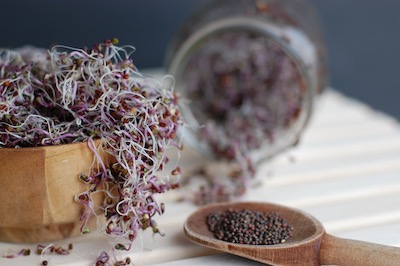
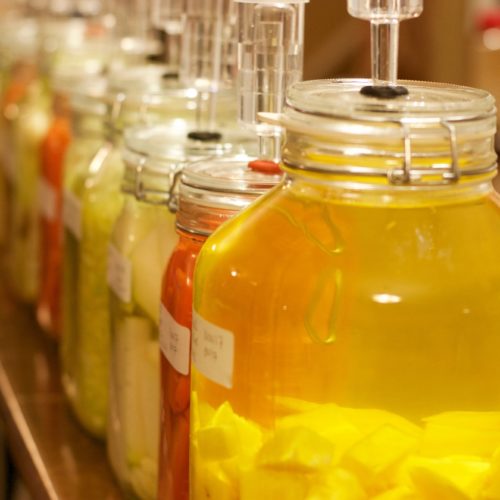
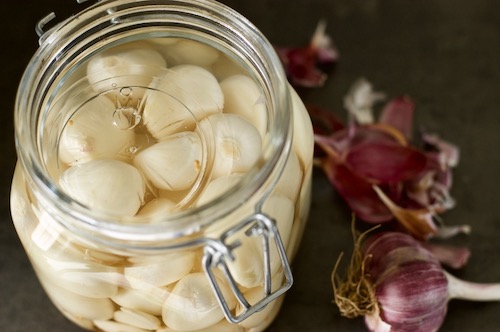
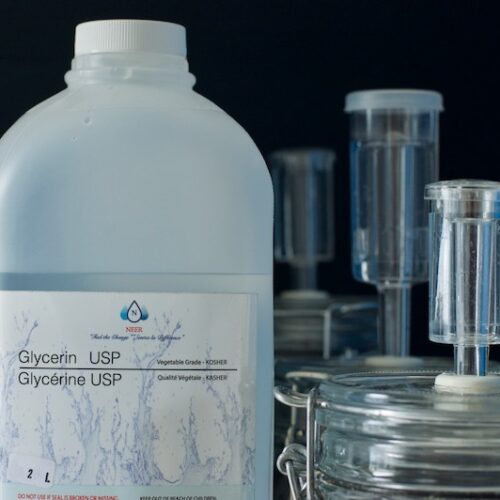
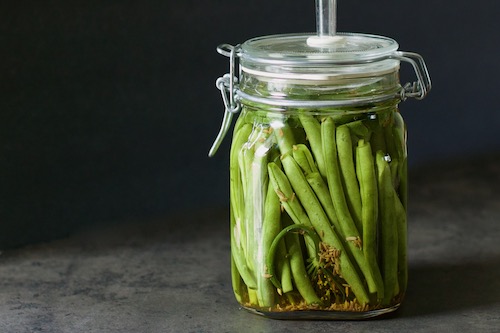
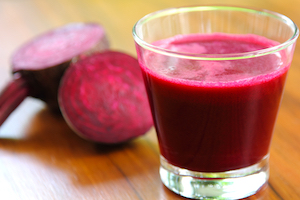
One reply on “Does sauerkraut harm the thyroid?”
I don’t understand how people think. You talk about people with thyroid issues should be more cautious about eating goitrogens than others. It’s the other way around. At least if you have been hypothyroid for years, and need over 100 mcg T4/day. You don’t produce any hormone. It doesn’t matter if your thyroid don’t get iodine, you can’t utilize it. And your thyroid doesn’t release hormones. It’s the thyroid healthy that need to not overdo it with the goitrogens. At least if they suffer from iodine deficiency. If you have ample iodine in your system, you don’t need to worry about goitrogens. Unless you eat mostly millet, like som African tribes. I just find it so strange, that people don’t understand this. I write about this on my blog, Thyroidblog.com